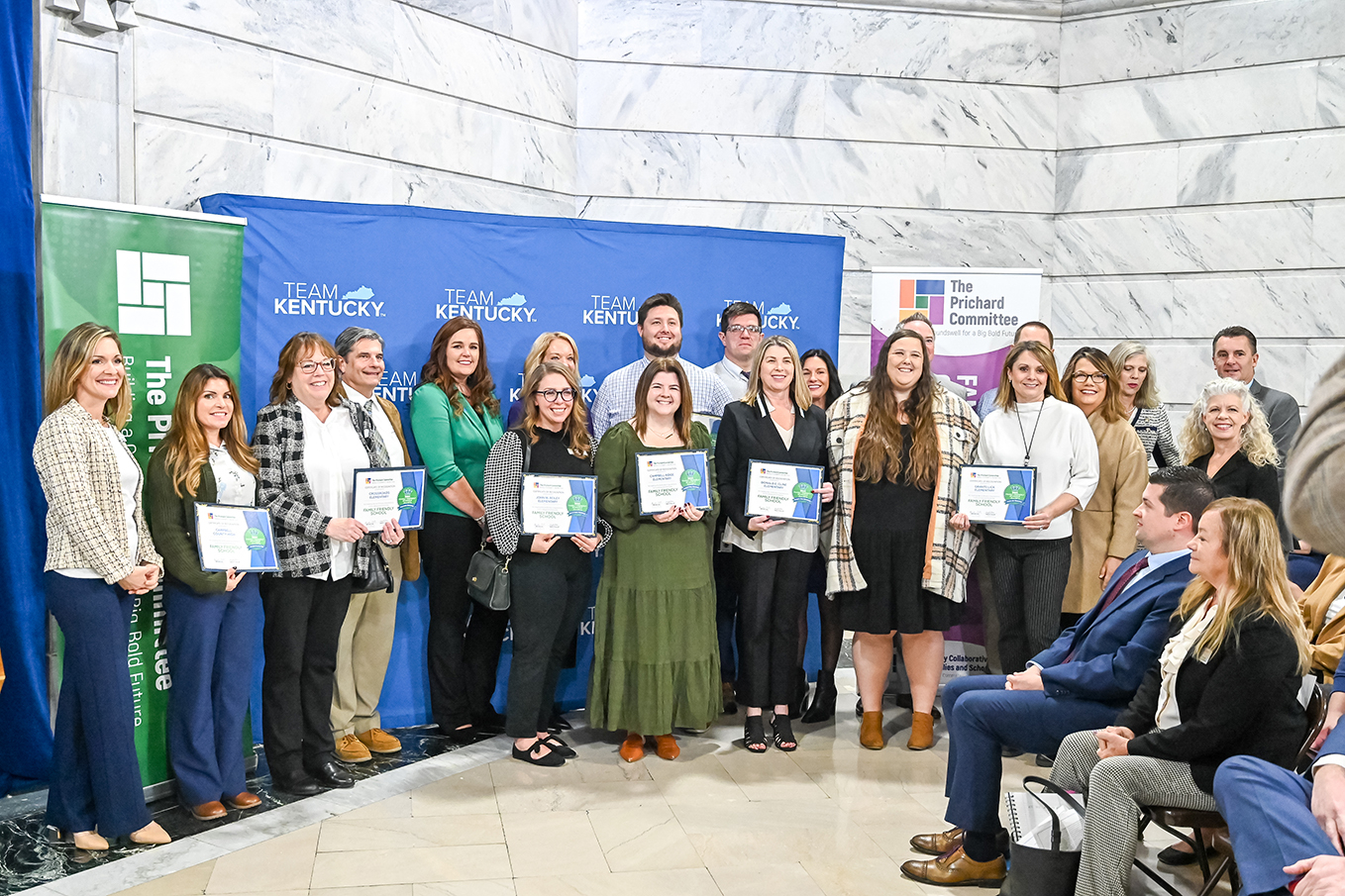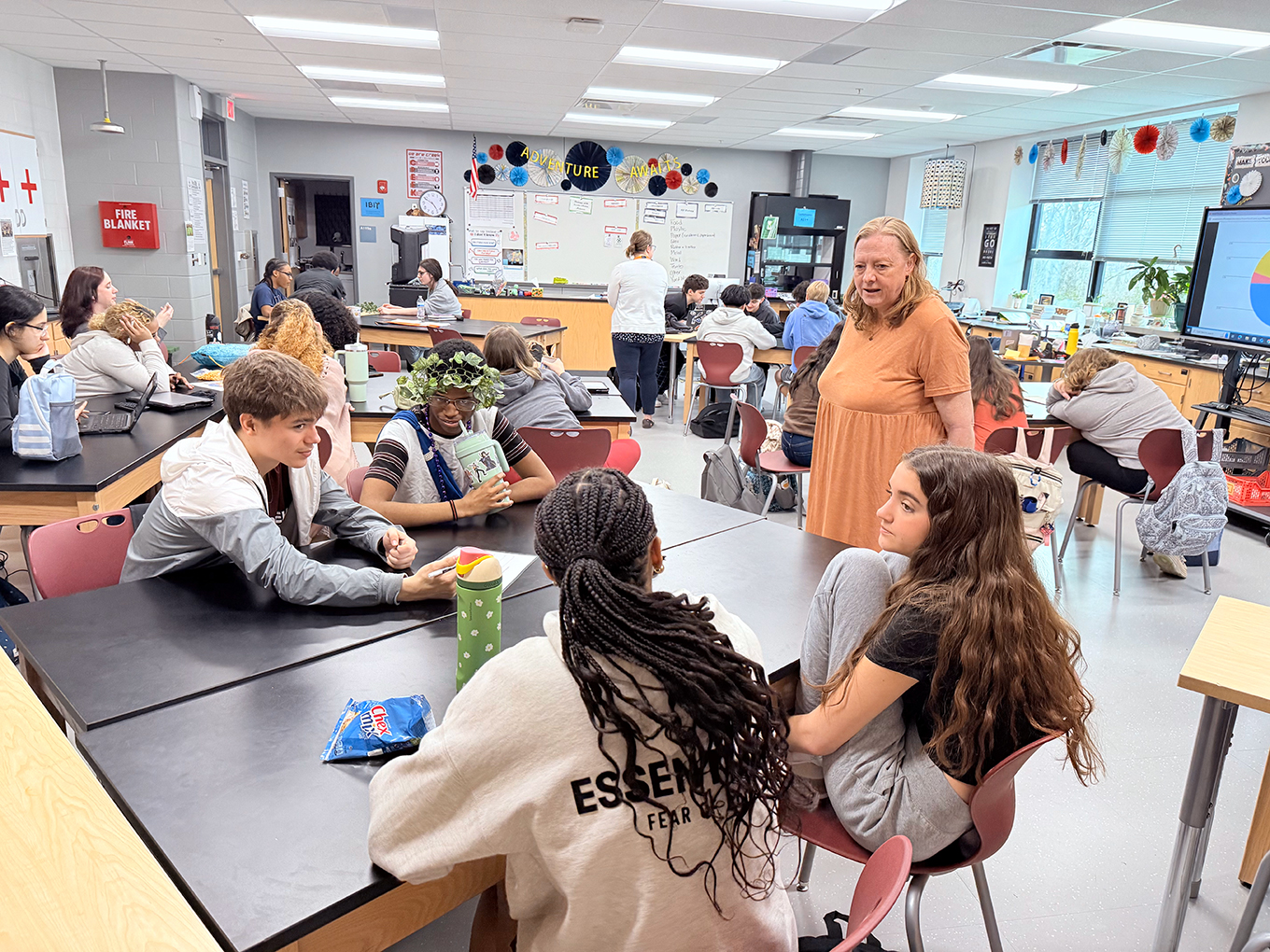By Lindsey Childers
lindsey.childers@trigg.kyschools.us
Imagine a classroom that centers on discovery – a classroom that allows students to act as teachers and use the skills they have acquired to solve actual problems. This sort of classroom is possible and is, in fact, happening all over Kentucky.
In my district, this classroom method is becoming a more frequent occurrence than customary instructional practices. We have been creating new paths for our students to prepare them for a fast- paced, ever-growing society – paths in which the answers are not always clear but the rewards are immeasurable. As we shift to the Professional Growth and Effectiveness System (PGES), many teachers are afraid the model required is not reachable, but I will say that as we continue to shift our focus to more innovative practices, I am able to see how problem-based learning fits perfectly into the new expectations outlined through PGES.
Trigg County was recognized as a District of Innovation last year by KDE. This was an involved process and required a great deal of commitment, specifically from our high school. However, our superintendent had a vision for the future of our schools. This vision would require a focus on problem-solving and critical thinking skills that seemed to be at a deficit in our past practices.
After providing a great deal of training and planning assistance, our district moved into the 21st century by offering a classroom that connected our Kentucky Core Academic Standards to the real-life applications needed for deeper learning to occur. For instance, instead of teaching a unit on the phases of the moon, our 1st-graders have worked together to create a sundial based on their own research studies, field trips, guest speakers and trial and error. The students have been able to help create the layout of their lessons based on their knowledge and inquiry.
Our high school students are creating campaigns and outreach programs to eliminate texting while driving. They are researching new outlets to increase safety by offering options for communication that would eliminate the need for a driver to look at his or her phone.
As we evaluate PGES and the new components of teacher evaluation, it is easy to see how this sort of practice would benefit all educators in some capacity. Domain 3 focuses entirely on instructional practices, and the highest level of achievement for teachers consists of student-led discussions, problem-solving, critical thinking, and engaging conversations focused on relevant issues. A focus on problem-based learning is a direct connection to practices that are now labeled as exemplary.
Now, this shift is not always easy; it requires a new way of looking at individual teaching practices. As we pave new paths, we find they are not always smooth. Some lessons are successful and others have to be completely revised. Also, this is not a daily replacement of standard instructional practices, as there are always going to be times that content has to be addressed through research-based practices that may not fall into this mold.
However, problem-based learning is a natural way to enhance teaching practices and ultimately student success. Regardless of the specifications of a rubric, allowing students to really engage in their learning through inquiry and practice will create a well-rounded graduate – one that will be more equipped to compete in our evolving society.
Lindsey Childers is a district curriculum specialist and primary assistant principal at Trigg County Public Schools. She is a Hope Street Group Teacher Fellow.





Leave A Comment